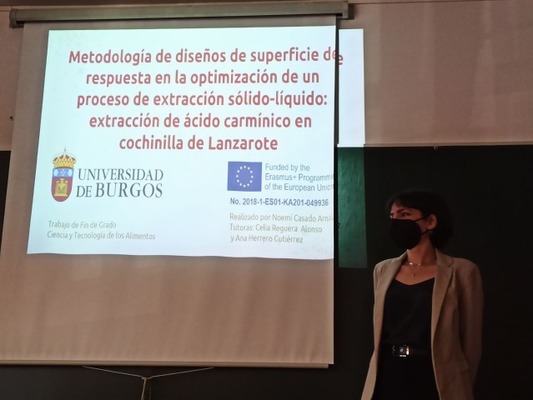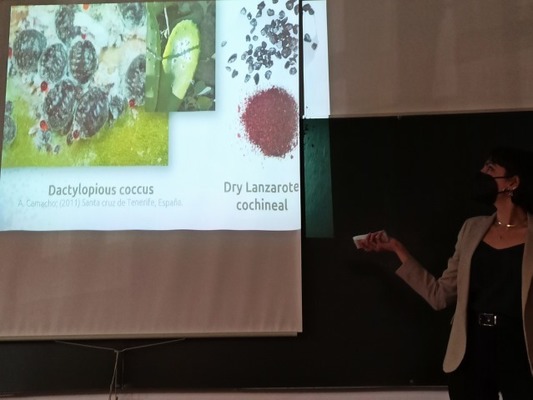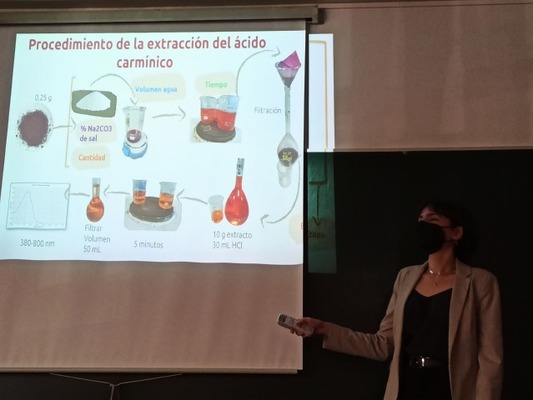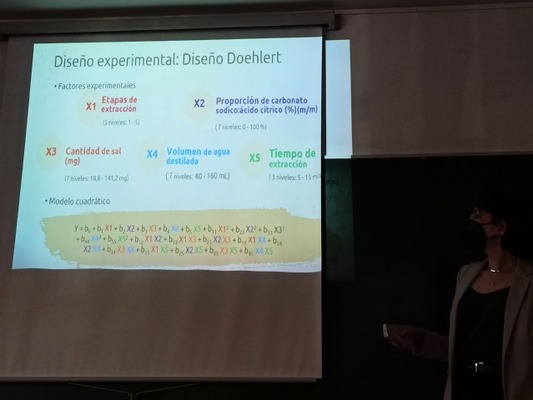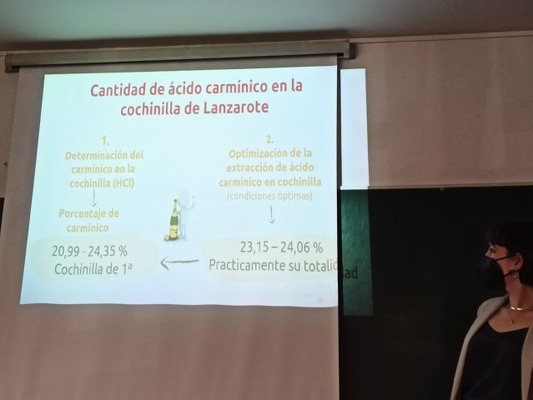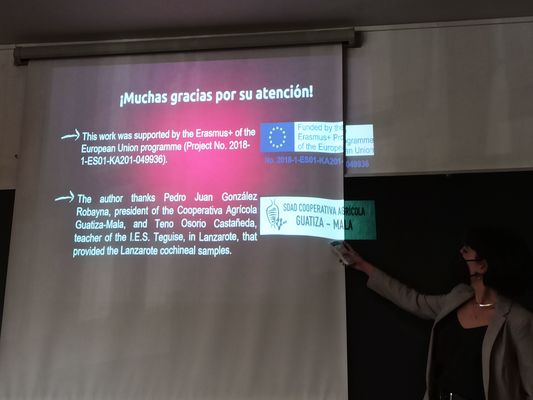NOEMÍ CASADO PRESENTED HER BACHELOR THESIS ON EXPERIMENTAL DESIGN IN THE OPTIMIZATION OF EXTRACTION OF CARMINIC ACID FROM COCHINEAL FROM LANZAROTE
Cultivation of cochineal (Dactylopius coccus), which is an insect harvested from cactus plants, is very important as a source of carminic acid colorant or carmine (E-120). The main cochineal producers are Peru and Mexico, and, in Europe, the Canary Islands, which is the only territory where it is produced, with a Protected Designation of Origin (DOP) “Canary Islands’ cochineal”. Although there has been a fall in its production, cochineal can be considered as a potential source of wealth for some villages of the Canary archipelago. As a result of the collaboration with Teno Osorio, from I.E.S. Teguise (Lanzarote), Noemí Casado Arnáiz has presented her Bachelor thesis “Response surface design methodology in the optimization of a solid-liquid extraction procedure: extraction of carminic acid of cochineal from Lanzarote” on 25th March 2021.
Cochineal extracts are a red natural colorant, which mainly contain carminic acid, and are obtained by extraction with water and/or ethanol. There are different extraction methods, their optimization lead to consider many experimental factors. Methodology of response surface designs, particularly a Doehlert design, is used in this work to optimize the extraction procedure from Lanzarote island’s cochineal and an aqueous solution of a mixture of sodium carbonate and citric acid, as an extractant medium. The factors considered are proportion of each salt and total amount, volume (water), time and number of stages. To reduce the experimentation but keeping the quality of estimates, a D-optimal design, with 24 of the 33 initial experiments, is chosen. Once the fitted model is validated, response surface is studied using the optimum path method, concluding that a largest percentage of carminic acid is obtained when 0,25 g of cochineal is extracted with 109,1 mL of a solution with 80 mg of sodium carbonate: citric acid (68 % m/m), in two stages and heating the solution to boiling point for 11,8 min. In these conditions, carminic acid percentage extracted from the Lanzarote’s cochineal is 23,26 % (± 0,46 %).
